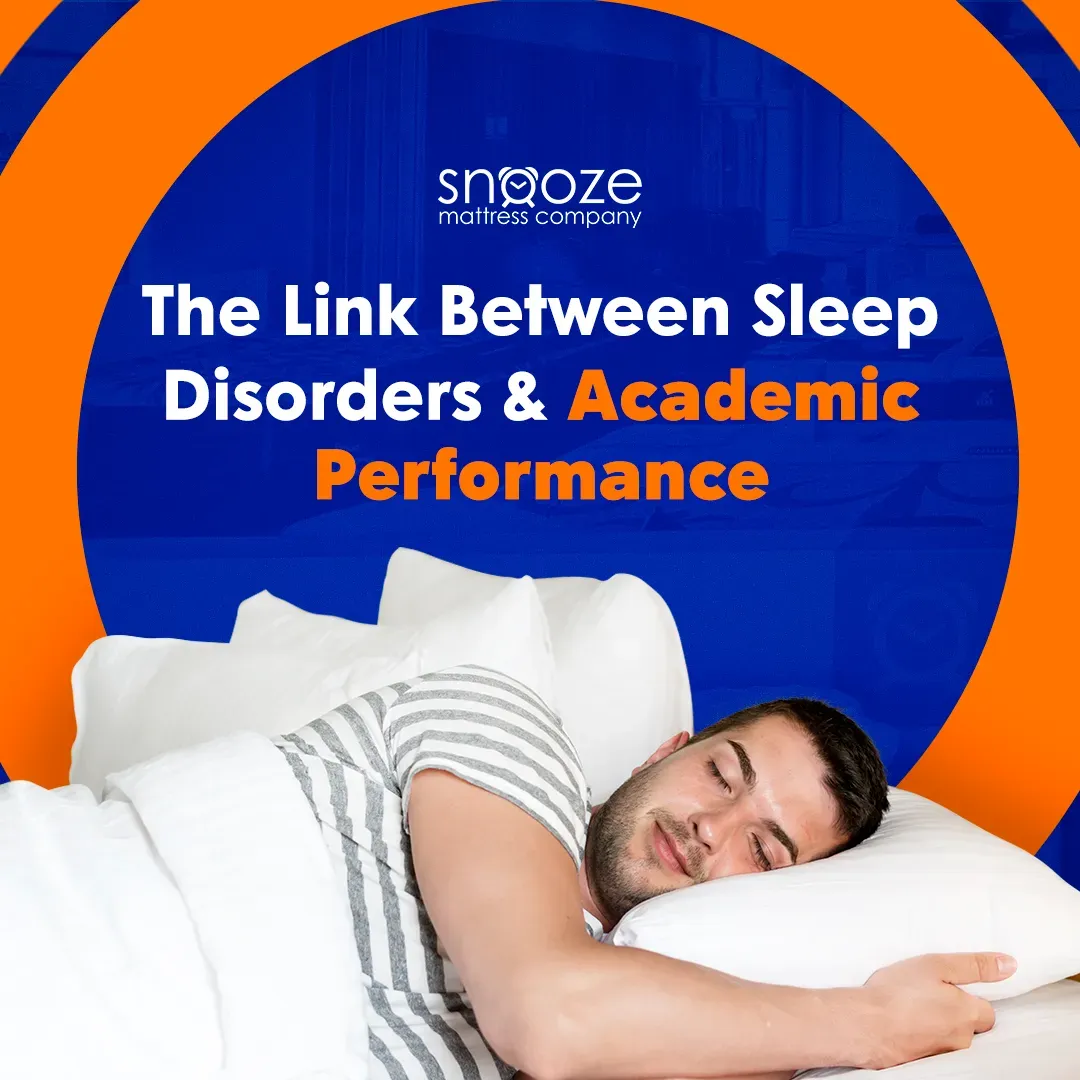The Correlation Between Sleep Disorders and Academic Performance
Tue Jun 03 2025

Sleep is a fundamental aspect of overall health and well-being, playing a critical role in physical growth, mental health, and cognitive function. For students, adequate sleep is essential for academic success. However, sleep disorders can significantly disrupt sleep patterns, leading to a host of negative outcomes that impact academic performance. In this blog, we’ll explore the correlation between sleep disorders and academic performance, the types of sleep disorders commonly affecting students, and strategies for addressing these issues to promote better sleep and improved academic outcomes.
Understanding Sleep Disorders
Sleep disorders encompass a range of conditions that impair the ability to sleep well on a regular basis. Some of the most common sleep disorders affecting students include:
Insomnia
Characterized by difficulty falling asleep, staying asleep, or waking up too early and not being able to go back to sleep. Insomnia can lead to daytime fatigue, irritability, and concentration issues.
Sleep Apnea
A serious disorder in which breathing repeatedly stops and starts during sleep. Symptoms include loud snoring, gasping for air during sleep, and excessive daytime sleepiness. Sleep apnea can severely disrupt the sleep cycle and impair cognitive function.
Restless Legs Syndrome (RLS)
Involves an uncontrollable urge to move the legs, usually due to uncomfortable sensations. This condition often interferes with falling asleep and staying asleep, leading to daytime drowsiness and concentration problems.
Delayed Sleep Phase Disorder (DSPD)
A circadian rhythm disorder where the individual’s sleep is delayed by two or more hours beyond the conventional bedtime, causing difficulty in waking up in the morning and leading to insufficient sleep.
The Impact of Sleep Disorders on Academic Performance
Cognitive Impairment
Sleep disorders can lead to significant cognitive impairments, including difficulties with memory, attention, problem-solving, and critical thinking. These cognitive deficits can hinder a student’s ability to learn new information, complete assignments, and perform well on exams.
Reduced Concentration and Focus
Sleep deprivation caused by sleep disorders can severely impact a student’s ability to concentrate and stay focused during classes and study sessions. This can lead to lower grades and decreased academic productivity.
Decreased Motivation and Engagement
Chronic sleep issues can affect a student’s motivation and engagement with their studies. Fatigue and lack of energy can result in decreased participation in class and a lack of interest in academic activities.
Mood and Behavioral Issues
Sleep disorders are often associated with mood swings, irritability, anxiety, and depression. These mood disturbances can negatively impact relationships with peers and teachers and reduce overall academic performance.
Physical Health Problems
Poor sleep can lead to a weakened immune system, making students more susceptible to illnesses. Frequent absences due to health issues can further disrupt academic progress.
Strategies for Addressing Sleep Disorders
Seek Professional Help
If a student is experiencing symptoms of a sleep disorder, it’s important to seek professional help. A healthcare provider can diagnose and treat sleep disorders, providing solutions such as cognitive-behavioral therapy for insomnia (CBT-I), medications, or lifestyle modifications.
Seek Professional Help
If a student is experiencing symptoms of a sleep disorder, it’s important to seek professional help. A healthcare provider can diagnose and treat sleep disorders, providing solutions such as cognitive-behavioral therapy for insomnia (CBT-I), medications, or lifestyle modifications.
Establish a Consistent Sleep Routine
Maintaining a regular sleep schedule helps regulate the body’s internal clock. Going to bed and waking up at the same time every day, even on weekends, can improve sleep quality.
Download a FREE sleep routine template here.
Create a Sleep-Friendly Environment
Ensure the sleep environment is conducive to rest. This includes a comfortable mattress and pillows, a cool room temperature, and minimal noise and light. Using blackout curtains, earplugs, or a white noise machine can help.
Practice Good Sleep Hygiene
Good sleep hygiene practices include limiting caffeine and alcohol intake, avoiding heavy meals before bed, and engaging in relaxing activities such as reading or meditation before bedtime.
Limit Screen Time Before Bed
The blue light emitted from screens can interfere with melatonin production and disrupt sleep. Encourage students to turn off electronic devices at least an hour before bedtime.
Manage Stress and Anxiety
Teaching stress management techniques, such as mindfulness, deep breathing exercises, and regular physical activity, can help reduce anxiety and promote better sleep.
Educate on the Importance of Sleep
Raising awareness about the importance of sleep for academic success and overall health can motivate students to prioritize sleep and adopt healthier sleep habits.
Sleep disorders can have a profound impact on academic performance, affecting cognitive abilities, concentration, motivation, mood, and physical health. By understanding the correlation between sleep disorders and academic performance, students, parents, and educators can take proactive steps to address sleep issues and promote healthy sleep habits. Prioritizing sleep is not only essential for academic success but also for overall well-being and long-term health.
